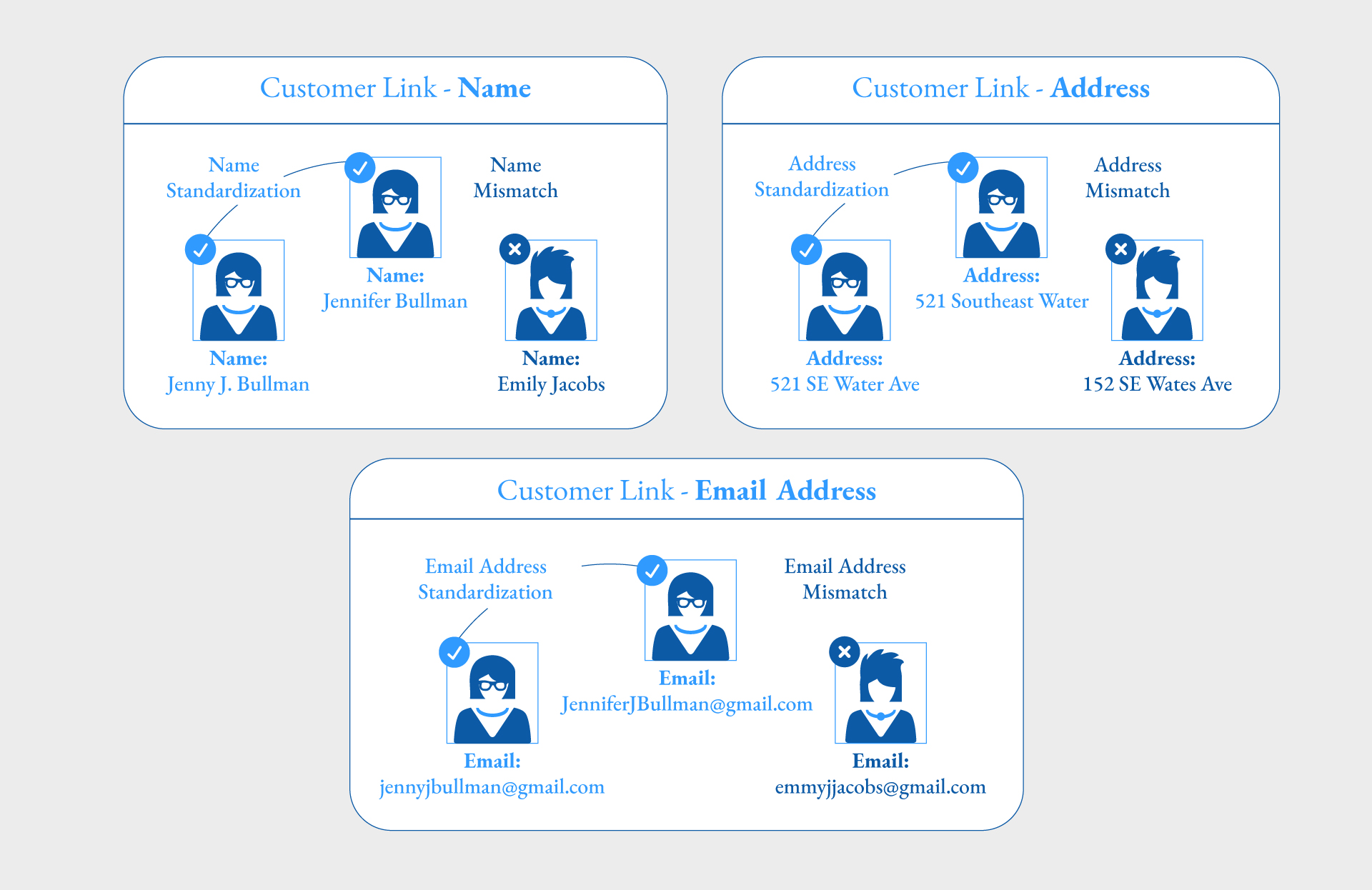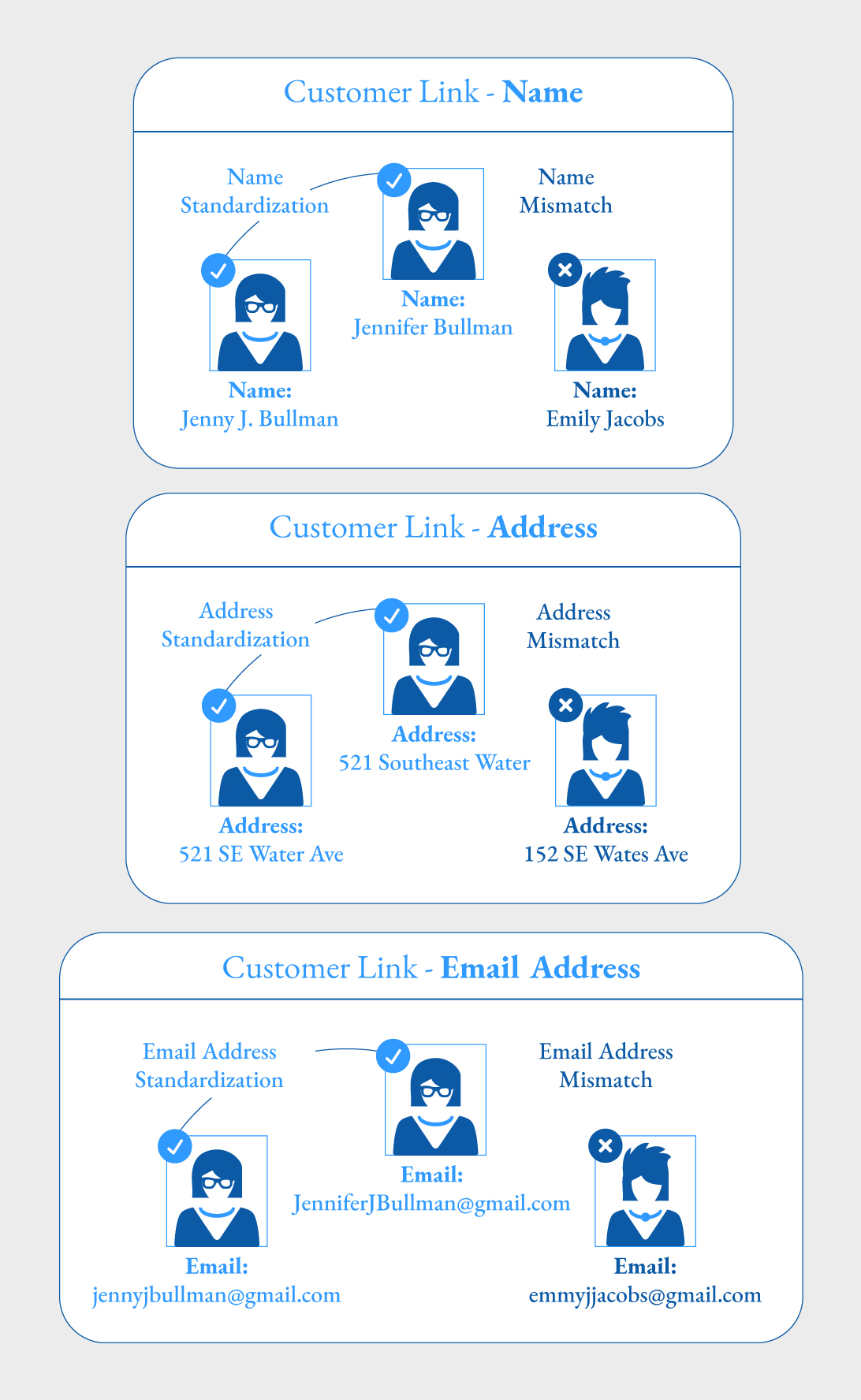Overview
Data matching, also known as record or data linkage, field matching, object identification or entity resolution is the process of comparing two or more different sets of data and identifying or matching them against each other. Data matching can also occur within one database. The goal is to identify data that refer to the same entity or element. Once matches are identified, data is delivered in a user-friendly and manageable format based upon the company or specific department’s unique process.
How Does Data Matching Work?
The problem data matching tries to solve is knowing that two elements are, in fact, the same element. There are many ways to perform data matching. Often, the process is based on a data matching algorithm. HDI Solutions, LLC utilizes proprietary matching algorithms that exceed 99.5 percent data matching accuracy rates.

Benefits of Data Matching
When handling large or small amounts of data, data matching allows you to perform more precise and accurate searches and analyze data at a more advanced level. Data matching allows for data to be compared, patterns to be identified, and irregularities to be flagged. Data matching helps increase accuracy, improve efficiency, and assist with monitoring compliance within a wide range of contexts. HDI’s matching algorithms utilize both exact and fuzzy matching protocols and provide the best opportunity to correctly identify matching records.
What is Exact Matching?
The exact matching process is just that, identifying data that has exact character matches (both letters, numbers, and symbols) to ultimately result in a match. If your data is not the same word or numerical sequence, the exact matching process will not identify it. Exact matching goes field by field to examine every character. Exact matching often turns to broadcast queries when an exact match is not found.
What is Fuzzy Matching?
Fuzzy matching is a process that allows a system to determine data matching with varying degrees of certainty (rather than simply determining whether data elements exactly match or not). This type of matching can be used for address matching and address standardization, enabling addresses to be matched with high certainty even with minor derivations in the data. The resulting matches can then be used to update databases. Fuzzy matching logic identifies commonly replaced letters, numbers, or symbols (i.e., 1 or I, 0 or O) and common words or names that may have variants (i.e., Sarah or Sara, Jon or Jonathan, Avenue or Ave). This method is advanced and able to recognize individual records that have a high likelihood of being correct.
How Can Data Matching Help My Company?
If your company has multiple data sets, data matching can help achieve your goals. Powered by HDI’s proprietary data matching algorithms, our systems provide accurate matching of disparate data sets. The human element of data entry is accounted and compensated for with entry errors and logic being ultimately eliminated through our proprietary matching algorithms. Using data matching to identify and clean messy or underutilized data can help scale your business efforts.
Data Matching for Private Companies
Below are examples of how data matching can benefit private companies:
Customer Identification: Knowing your customer and being able to identify and connect the multiple actions of a single customer can result in increased sales and effective, targeted messaging.
Customer Isolation: Utilizing data matching to identify or isolate customer data to include or remove customers from targeted marketing initiatives.
Ecommerce: Building an effective ecommerce system is an investment. Being able to effectively utilize the data generated is even better. HDI utilizes data matching to locate identical products from different stores and help companies streamline their distributor data and protocols.
ERP Systems (Enterprise Resource Planning): Integrating data sets and elements from multiple systems can be both challenging and rewarding. Imagine if your most important information was confirmed for accuracy and delivered in a usable format to your business units.
- Mailing lists: Data matching can assist in cleaning email and mailing lists to eliminate duplicates and messy data.
Healthcare: Data matching of medical records with other data elements to not only identify patients but also study the recommendations and effects of drugs and treatment protocols is benefit of the data matching process.
Fraud detection: Data matching can identify suspicious transactions, behaviors and, combined with the security protocols of HDI systems, assist private companies in protecting the proprietary components of their business.
How Fuzzy Matching Works
Data matching determining varying degrees of certainty


